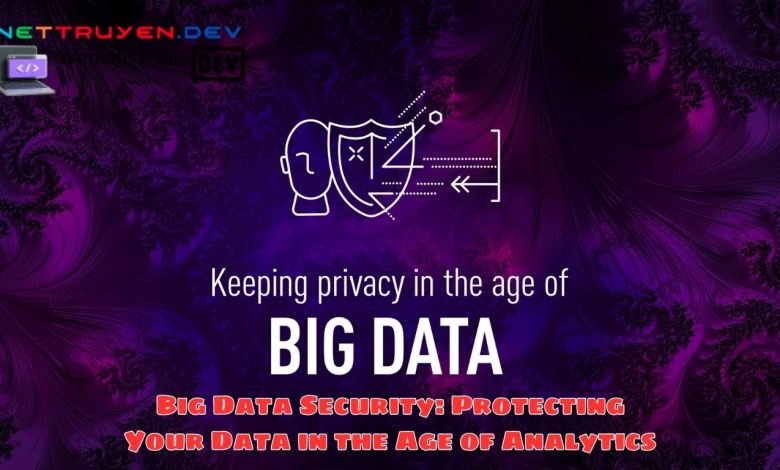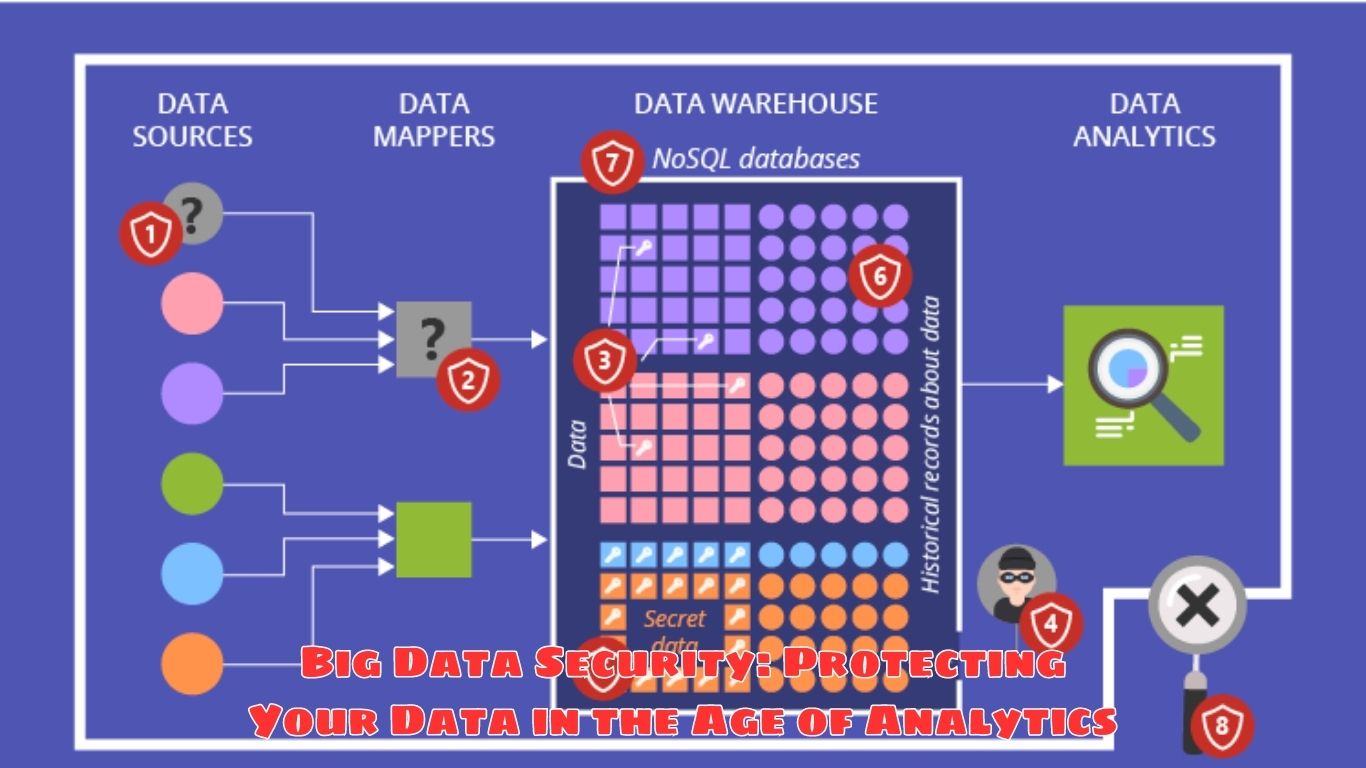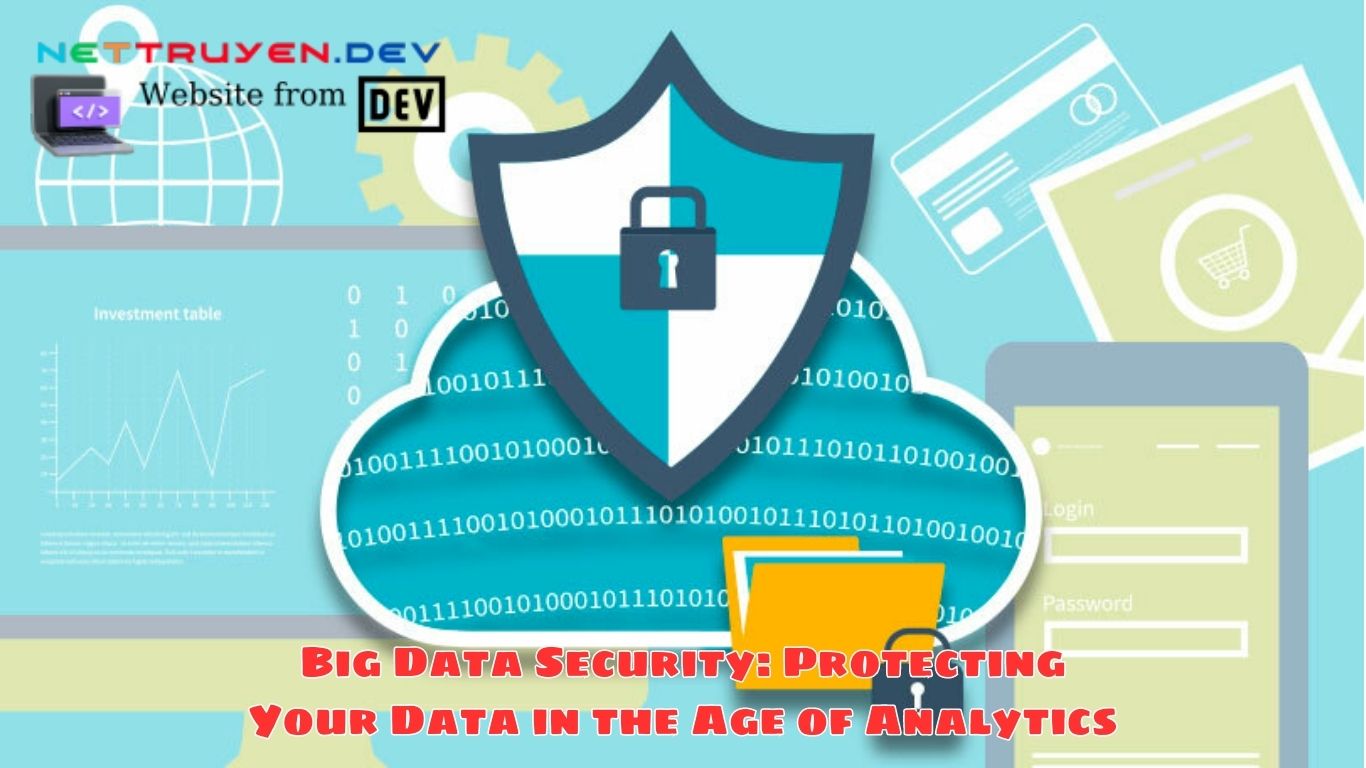Big Data Security: Protecting Your Data in the Age of Analytics

Big data has developed into a useful tool for organizations to gather insights and make educated decisions in today’s digital environment and the risk of data breaches and cyberattacks does, however, increase with the usage of big data so to safeguard sensitive data from unwanted access, theft, and manipulation, big data security is crucial. In this article, Nettruyen will examine the value of big data security in the era of analytics and discuss the steps that organizations can take to safeguard their data.
Big Data Security: Protecting Your Data in the Age of Analytics

Big data security is the practice of protecting sensitive and confidential data from unauthorized access, theft, or manipulation. Big data consists of vast amounts of data collected from various sources, including social media, mobile devices, sensors, and other sources. This data can be used to gain insights into customer behavior, market trends, and other valuable information. However, this data is also vulnerable to cyber attacks, making big data security a critical concern for businesses.
There are several threats to big data security, including hacking, phishing, malware, and insider threats. Hackers can exploit vulnerabilities in a company’s network to gain access to sensitive data. Phishing attacks involve tricking employees into revealing sensitive information, while malware can infect a company’s network and steal data. Insider threats involve employees or contractors who intentionally or unintentionally compromise data security.
To protect against these threats, businesses need to implement a range of security measures, including access control, encryption, and monitoring. Access control involves limiting access to sensitive data to authorized personnel only. Encryption involves converting data into a code that can only be deciphered with a key, making it unreadable to anyone without the key. Monitoring involves tracking and analyzing network activity to detect and respond to potential threats.
Businesses can also implement security policies and procedures to protect their data. These policies should include guidelines for data backup, password management, and incident response. Data backup involves creating copies of data in case of a data loss or breach. Password management involves creating strong passwords and regularly changing them to prevent unauthorized access. Incident response involves preparing for and responding to security incidents, including data breaches.
In addition to these measures, businesses can also use big data analytics to improve their security. Big data analytics involves using algorithms and machine learning to analyze large amounts of data to identify patterns, anomalies, and potential threats. This can help businesses to identify and respond to security threats more quickly and effectively.
Cloud-based big data solutions also offer a range of security features, including data encryption, access control, and monitoring. Cloud-based big data solutions allow businesses to store and analyze large amounts of data without the need for expensive infrastructure or IT staff. Cloud-based solutions can also be more secure than on-premise solutions, as cloud providers often have better security measures and expertise.
Big data security is a critical concern for organizations of all sizes, as the volume of data continues to grow, and the value of that data increases. With the increasing use of big data, businesses need to ensure that they are taking appropriate measures to protect their data from unauthorized access, theft, or manipulation.
Access control is one of the most important measures in big data security. Access control involves limiting access to sensitive data to authorized personnel only. This can be achieved through the use of passwords, biometric authentication, or other means. Access control also involves monitoring access to sensitive data and auditing access logs to detect any unauthorized access attempts.

Encryption is another important measure in big data security. Encryption involves converting data into a code that can only be deciphered with a key, making it unreadable to anyone without the key. This can help to prevent unauthorized access to sensitive data, even if a breach occurs. Encryption can be applied to data at rest, as well as data in transit.
Monitoring is also crucial in big data security. Monitoring involves tracking and analyzing network activity to detect and respond to potential threats. This can involve the use of intrusion detection systems, security information and event management (SIEM) tools, and other monitoring tools. Monitoring can help to identify potential threats before they become serious, and allow organizations to respond quickly and effectively.
In addition to these measures, businesses should also implement security policies and procedures, such as data backup, password management, and incident response. Data backup involves creating copies of data in case of data loss or breach. Password management involves creating strong passwords and regularly changing them to prevent unauthorized access. Incident response involves preparing for and responding to security incidents, including data breaches.
Big data analytics can also be used to improve security. Big data analytics involves using algorithms and machine learning to analyze large amounts of data to identify patterns, anomalies, and potential threats. This can help businesses to identify and respond to security threats more quickly and effectively.
Cloud-based big data solutions also offer a range of security features. Cloud-based big data solutions allow businesses to store and analyze large amounts of data without the need for expensive infrastructure or IT staff. Cloud-based solutions can also be more secure than on-premise solutions, as cloud providers often have better security measures and expertise.

In conclusion, big data security is a complex and constantly evolving field. Businesses need to take a comprehensive approach to big data security, including implementing access control, encryption, and monitoring measures. They should also implement security policies and procedures, such as data backup, password management, and incident response. Big data analytics and cloud-based solutions can also help businesses to improve their security and respond to security threats more quickly and effectively. By taking these measures, businesses can protect their data from cyber attacks and data breaches, and ensure the confidentiality, integrity, and availability of their data.
Conclusion
In conclusion, big data security is essential to protect sensitive data from cyber attacks and data breaches. Businesses need to implement a range of security measures, including access control, encryption, and monitoring, to protect their data. They should also implement security policies and procedures, such as data backup, password management, and incident response. Big data analytics and cloud-based solutions can also help businesses to improve their security and respond to security threats more quickly and effectively. By taking a comprehensive approach to big data security, businesses can ensure the confidentiality, integrity, and availability of their data in the age of analytics.
Conclusion: So above is the Big Data Security: Protecting Your Data in the Age of Analytics article. Hopefully with this article you can help you in life, always follow and read our good articles on the website: nettruyen.dev




